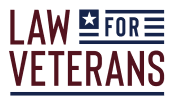Responsibilities and Restrictions After Military Retirement
After retirement, a service member still has responsibilities towards the military. Also, there are ethical and legal restrictions on military retirees who want to work in a civilian field. Explore the following areas for more information.
What is expected of you after you retire from the military?

- Keep your ID card and your family member's ID cards current.
- Only wear your unform in compliance with official uniform directives.
- Before accepting any sort of employment from a foreign government, whether a temporary assignment or a permanent job, get approval.
- When working in a civilian field, avoid any conflicts of interest by complying with federal employment restrictions and following reporting requirements when a conflict of interest is identified.
- Educate your loved ones about the location of all your military records and about how to contact the nearest casualty assistance office in the event of your death.
- Make sure you promptly notify the Accounting and Finance Center, for your branch of the service, about changes in marital status, address changes, or any other change that could affect your Survivor's Benefit Plan
What legal restrictions on future employment may apply?

Example: You were a Navy officer responsible for working with a civilian company on a missile guidance system for submarines. You are now retired and employed with that same civilian company. Recent allegations have arisen that the guidance system is susceptible to hacking by foreign powers. You cannot go before a Congressional committee and testify to the safety of the guidance system.

Does your ranking at the time of retirement matter?
What happens when a violation occurs?


What if you do not know if the job would create a violation?
Can I work for a government in another country?
Maybe. If you are retired military, you are required to get permission from the secretary of your service (Secretary of the Navy, Army, Air Force, etc.) and from the Secretary of State before working for a foreign government.
requires approval before any retired federal employee or any retired member of the U.S. Armed Forces can accept a paycheck from a foreign country. The penalty for violating the Emoluments Clause is losing your military retirement during the period of the violation.
The Emoluments Clause affects retired enlisted personnel and officers alike.
